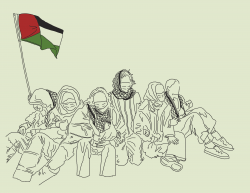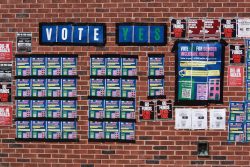Next time you only have two dollars and are dying for a Chicken Madness, think twice before overcharging your credit card at Wisemiller’s: It might effect your ability to fly any time soon. In the government’s latest move to tighten security, the U.S. Department of Transportation’s new Computer Assisted Passenger Screening System (CAPS II) will assign a threat level in the form of a color to everyone who purchases an airline ticket. This rating will be based on private information, including credit reports and bank account activity. If someone is assigned a “green,” there is no restriction of flight; a person assigned a “yellow” will be searched at the airport, and a person assigned a “red” will not be allowed to fly. We believe this system is a violation of civil liberties and a misdirected attempt to combat terrorism.
While every step should be taken to ensure safe transportation or protection from fraud, the connection between analyzing financial activity to protect others from airline terror is tenuous at best. Under this plan, the government could not differentiate between someone who simply has irregular credit activity and someone whose air travel is financed by a terrorist organization. Bad credit ratings should not be a strike against someone who wants to fly. Therefore, not all citizens need to be subjected to extensive screening that not only includes financial activity, but also other data that the government will not specify. Furthermore, if a person is deemed a security risk, this data is held for fifty years, an unreasonable length of time for someone who may have made a simple credit error.
Even though security measures are necessary in threatening times, when such measures conflict with privacy the government must weigh the costs versus benefits. CAPS II invades privacy by subjecting people to background research resulting from the rudimentary task of purchasing an airline ticket, and it could, as the American Civil Liberties Union argues, create a “permanent underclass of Americans who cannot travel freely.” When the branding of citizens occurs based on bad credit or other undisclosed standards, privacy must trump security. This judgment is especially necessary when analyzing the credit record of someone who is not otherwise under financial surveillance: The government fails to provide adequate reasons why extensive financial checks are necessary.
We believe the government should create innovative ways to combat terrorist threats. However, it should avoid attempts to limit the right to privacy. When the government monitors unnecessary information and is ambiguous and secretive about the information it requires, it is an especially offensive invasion of individual rights.




